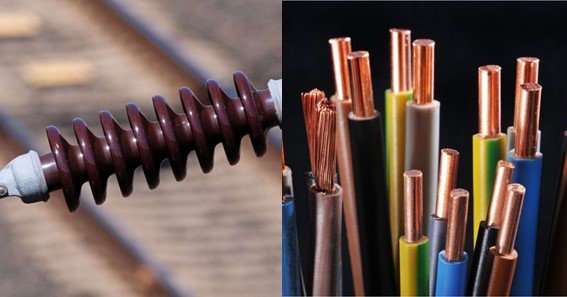Conductors and insulators are fundamental concepts in the world of electricity, playing vital roles in how electrical systems operate. Conductors allow the free flow of electric charge, making them indispensable in wiring and circuits, while insulators prevent unwanted current flow, protecting us and our devices from electrical hazards.
Understanding Conductors and Insulators
What Are Conductors?
Conductors are materials that permit the flow of electricity with minimal resistance. This ability to conduct electricity is due to the presence of free electrons that can move easily from atom to atom when a voltage is applied. Metals like copper, silver, and aluminum are excellent conductors, which is why they are commonly used in electrical wiring and components
- Examples of Conductors: Are Copper wires in household wiring, aluminum in power lines, and gold in high-performance electronics.
What Are Insulators?
In contrast, insulators are materials that resist the flow of electric charge. The electrons in insulators are tightly bound to their atoms and do not move freely, making it difficult for electricity to pass through. This property makes insulators crucial for protecting us from electric currents and ensuring that electricity flows only where it is intended.
- Examples of Insulators: Rubber coating on electrical wires, glass insulators on power lines, and plastic casings for electronic devices.
The Role of Conductors and Insulators in Electricity
- Safe Transmission of Electricity: Conductors are used to create paths through which electricity can flow, while insulators ensure that this flow occurs only where it’s needed, preventing short circuits and accidents.
- Electrical Devices and Components: In devices like transformers and capacitors, conductors and insulators work together to control the flow of electricity, store energy, and prevent electrical leakage.
- Everyday Applications: From powering homes to enabling the functionality of smartphones, the appropriate use of conductors and insulators is key to the safe and efficient use of electrical power in daily life.

FAQ
- What is a conductor of electricity?
A conductor is a material that allows electricity to flow through it easily, due to the presence of free-moving electrons. Common examples include copper, aluminum, and silver. - What materials are considered good insulators?
Materials like rubber, glass, and plastic are good insulators because they resist the flow of electricity, keeping us safe from electrical currents. - Why are conductors important in electrical wiring?
Conductors are essential in electrical wiring because they provide a path for electric current to flow, powering everything from lights to appliances. - How do insulators protect us from electricity?
Insulators prevent the unintended flow of electricity, ensuring that currents do not escape from wires or components, which helps prevent electric shocks and fires. - Can a material be both a conductor and an insulator?
While materials are typically classified as either conductors or insulators, some, like semiconductors, can act as both under different conditions, making them crucial in electronic devices.










